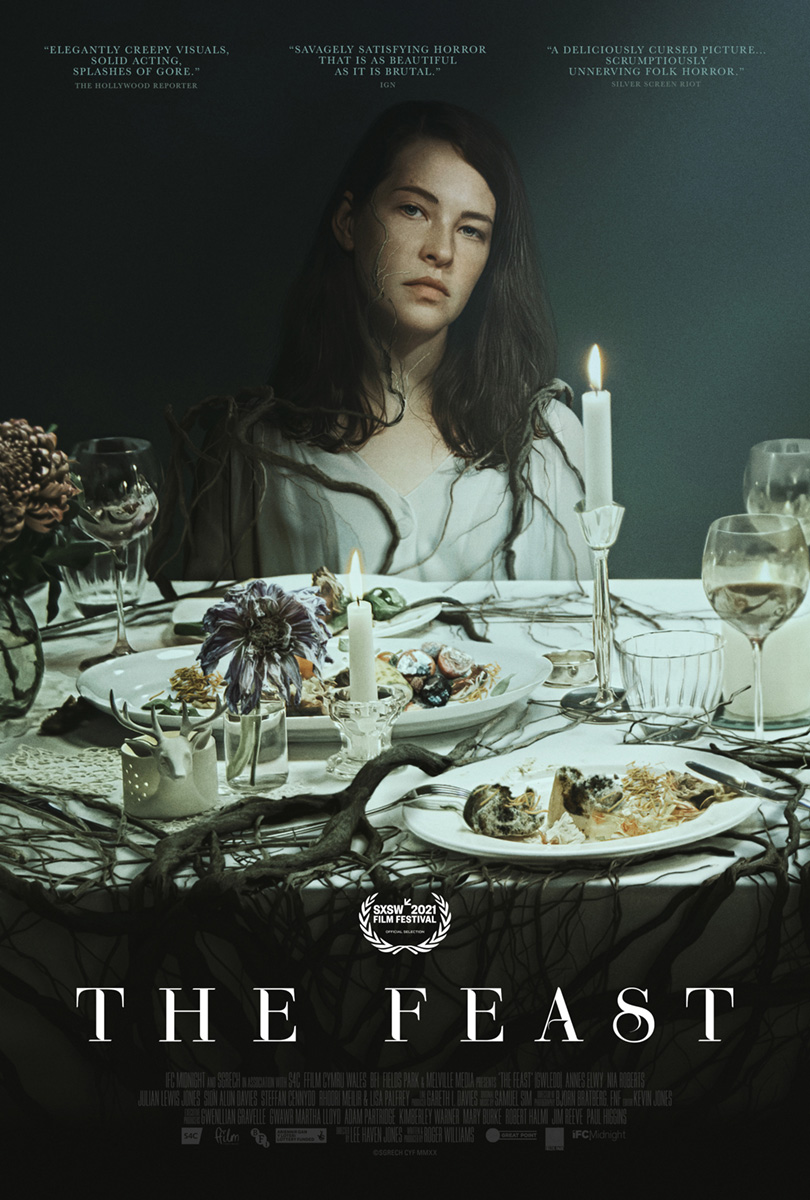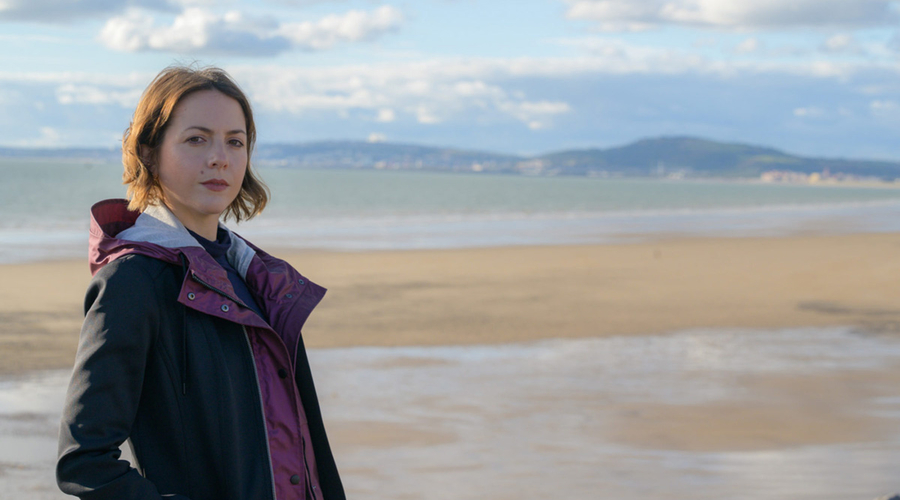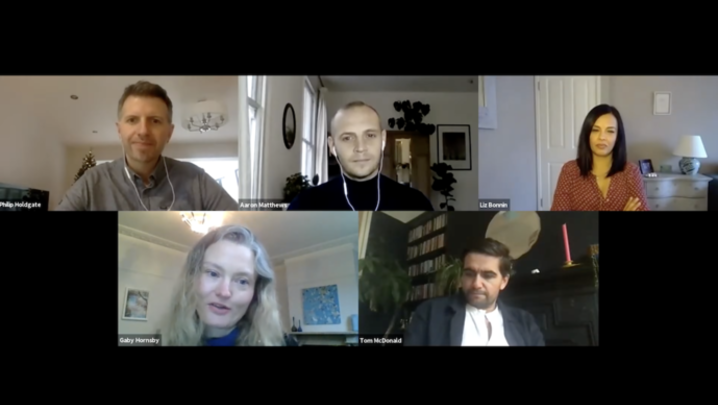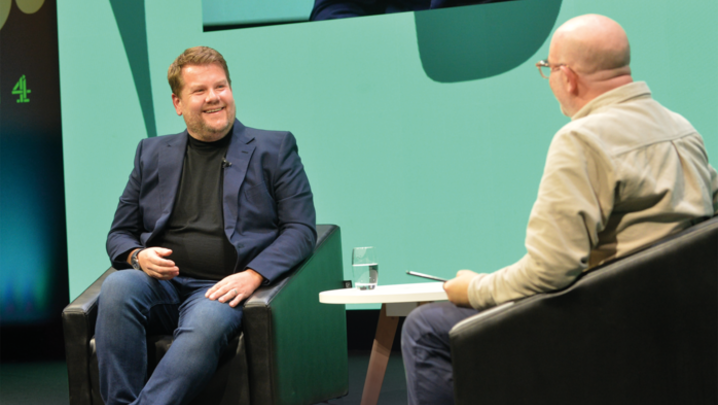The RTS in Wales examines how far we’ve got with sustainable production and on-screen recognition of the environmental crisis.
Many TV producers have been making great efforts to cut their carbon footprint over the past few years. There is still much more to do behind the camera, but more attention is now being given to environmental messages on-screen.
The panel assembled for an RTS Cymru Wales event this month boasted the two winners of the Edinburgh TV Festival Green Award. Roger Williams’s bilingual cop series Bang won the inaugural award in 2020, while Sky Sports, represented on the panel by its manager for responsible production, Jo Finon, won this year.
Joining them on the panel were Greg Mothersdale, environmental lead at South Wales screen and TV body Clwstwr, and Sally Mills, head of operations and sustainability lead for BBC Studios.
Williams, who heads his own indie, Joio TV, said: “I was a writer [and] my carbon footprint personally was very low – I worked at home before most people worked from home.… It was only when I became responsible for the means of production that I realised [how we could be more sustainable].… I would be on set and observe the waste.
“I always had people saying to me: ‘We haven’t got enough money to make this show.’ That was a constant refrain.… I thought I could get people to change their behaviour [and adopt] sustainable thinking.… I realised that it could save us money.”
The first series of Bang saw the producers take some environmentally correct, albeit obvious, decisions: not driving actors into the central Port Talbot production base, they let the train take the strain; no printed call sheets; and no wasteful paper cups.
For series 2, sustainability informed the production budget, which, at just £350,000 per hour, was tight. “There was a real effort not to move – that was our key commitment,” recalled Williams. “We realised if we went too far from our base, we would pay for that in terms of location fees, moving the unit, caterers.… Because Port Talbot is such a key character to the drama, [we made] a concerted effort to stay within our building or just a stone’s throw away.
“A lot of our impact in terms of sustainability was being hyper local.… I’d written the script so I [could ensure] we didn’t stray too far from base.” The series’s three key locations were all within walking distance of the production’s main base.
Sky Sports’s Finon said: “When I joined the industry 15 years ago, it was incredibly fossil-fuel heavy, a travelling circus essentially.”
Internationally, Sky Sports started to roll out remote productions six years ago in golf, tennis, rugby and Formula One. Domestically, remote production has been boosted by the Covid-19 pandemic, as has the use of regional crews. “We can reduce our footprint, [in terms of] the quantity of people and kit that travel, by 50%, which is massive,” said Finon.
In the past year, Sky Sports has introduced biofuel (hydrotreated vegetable oil) for outside broadcast trucks and generators. “It’s not the end goal but it’s a step towards a greener solution,” she noted.
Sky Sports does about 800 outside broadcasts a year and its various green initiatives, such as remote production or LED lighting, need to work “across the board” to keep costs down. “Everything we have introduced is either flat, cheaper or a tiny incremental cost,” revealed Finon.
Mothersdale described Clwstwr’s role as one of “making greener choices easier… in a sector where it’s hard to make different decisions when you’re still trying to get the content in the can. We’re trying to make the sector move forward collaboratively.”
The BBC, like Sky and the other big UK broadcasters, has set a goal of net zero greenhouse gas emissions by 2030. “If you look back 10 years, when [sustainable production scheme] Albert was set up, a lot of the industry came together.… That off-screen journey towards reducing carbon – we’re all aiming for net zero – has developed very well… but there’s still more to do,” said Mills.
Echoing Finon, she said: “I wouldn’t want to belittle the terribleness of the Covid pandemic but… it has forced people to make change and some of that has been for [the benefit of] sustainability.”
Mills revealed that BBC Studios had made The Year Earth Changed for Apple TV+ using drones, lots of local crews and not a single international flight – “an extraordinary thing on a massive Natural History Unit show such as that”.
This month, the BBC and 11 other UK broadcasters and streamers signed the Climate Content Pledge, which recognises their responsibility to help audiences understand climate change. “People are recognising the power of our voice,” said Mills.

(credit: Picturehouse Entertainment)
During the first week of November, and timed to coincide with the COP 26 conference in Glasgow, seven soaps – Casualty, Coronation Street, Doctors, EastEnders, Emmerdale, Holby City and Hollyoaks – contained scenes addressing different aspects of climate change.
Finon said that, in the past, Sky Sports commentators tended not to address climate-change issues editorially: “We would never connect a cricket match being rained off… or air pollution… with climate change. Now we are committed to using our voice more.
“We’re not going to talk about it every match, but, where it’s relevant… where there are solar panels on the roof, or the club or players are doing something brilliant, we want to talk about it because it is so important.”
Williams has now made a Welsh-language eco-horror, set in Snowdonia, Gwledd (The Feast), which screened at last month’s BFI London Film Festival. “I’m interested in how, as creative people and writers, we can build in sustainability to the narrative [of] our dramas,” he said.
The Feast, Williams explained, has “at the heart of it… a message about the individual’s relationship to the Earth… and how the Earth takes revenge on a family who betray [it].
“It’s a tricky thing to get right, creatively. [Challenging] audiences within the narrative can feel clunky, it can feel added on.” But, ultimately, he suggested, producers and broadcasters “have a responsibility to prompt people”.
Report by Matthew Bell. The RTS Cymru Wales event, ‘COP a load of this’ was held on 11 November. It was chaired by Owen Williams.







